An Interview with DJ Plummer
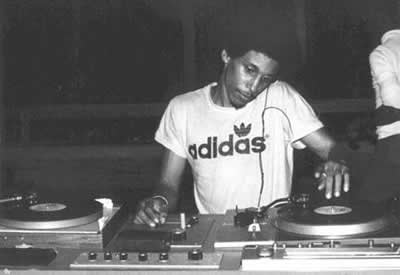
Summer 2010
Troy- Alright Mr. Plummer I want to thank you for giving me this opportunity to interview you, thank you very much. First thing first where were you born and raised?
Plummer- I was born in the Bronx in Morrisania hospital. I lived for a while on Boston Road and 160th street, I believe. By the time I was ready for school my parents had moved to Queens where I went to P.S. 45 for Kindergarten and 1st. grade. We moved a couple of years later again and I then went to P.S. 124 (still in Queens). Around 1965 I completed 7th and 8th grade at Robert H Goddard Jr. High School(JHS 202); over by WoodhavenBlvd, which is a couple of blocks from where the brother Yusuf Hawkins was killed a number of years later (the infamous Howard Beach incident).
Troy- What high school did you attend?
Plummer- I went to John Adams high School for my freshmen year was pulled out of John Adams becauseI supposedly performed extremely well on a series of standardized exams, and was enrolled in the college discovery program at Jamaica HS. I spent my summers at Columbia University in Harlem. I finished my senior year at John Adams since in those days they didn’t play that like today – I blew up a cherry bomb in the school auditorium and that was enough to get me kicked out.
Troy- Right for sure (we both laugh.)
Plummer- I went back to John Adams HS, my home school, which was down the block from John Gotti’s Fish and Tackle Club and where I graduated from.
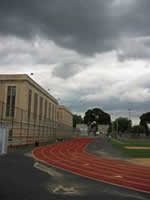 Troy- So you were a pretty good student, did you play any basketball?
Troy- So you were a pretty good student, did you play any basketball?
Plummer- No I ran track for Larry Ellis at Jamaica HS (later the first black ivy league coach and even later Olympic track coach) and I was on one of the best mile relays in the city. It was always us along with, Dewitt Clinton, Andrew Jackson and Boys High and a few others competing together at the Penn relays. I was then a pretty good quarter miler. One of the few people I can remember going to the same HS school I did back in the day would be Richard Parsons (a few years ahead of me and now the former CEO of Time Warner, Inc and the Dime Savings Bank), although I was in the same class as his brother. I wasn’t close with too many people at Jamaica HS because I had to take a bus and a train, (wasn’t my home school) to school, I ran track and had to take a train and bus home; so that was my day.
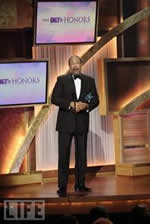
Troy- Any brothers and sisters?
Plummer- Yes I am the oldest of five. Three brothers and two sisters.
Troy- So you were able to skip Vietnam ?
Plummer- I was lucky because my draft number was 304. My father was the type of person who made us take all the civil service exams. I took the civil service exam for the Police department when I was a junior in high school and if I remember correctly I scored an 86 or something. This was for a Police Trainee Program where they would take you when you were in high school and if you performed well on all the tests (written, physiological and physical), you would become a trainee and if you then kept your nose clean, at 21 you became a NYC probationary patrolmen. So I went through all that as well as the psych exam and obstacle course. By the time they called me up I was a senior about to graduate from college so I turned NYPD down. When I was 18 the selective service draft was choosing by lottery, you would get selected because your birthday would get pulled out of a hat and my birthday was picked at 304. So the chances of me getting called up were very low.
Troy- So the stars and moon wanted to keep you out here to produce that beautiful music!
Plummer- Exactly, well grace was at work.
Troy- Even people that survived life and death over there still had a hard time dealing with society when they made it back.
Plummer- That’s true but I also come from a military family where my father spent 30 years in the Marine Corps, He was in Korea and then he volunteered when I was a junior and senior in high school to go to Vietnam .
Troy- He volunteered, damn!
Plummer- Yes
Troy- So with a father like that what was his feelings about you starting to turn towards this music, was he cool with thatespecially him being a Marine!
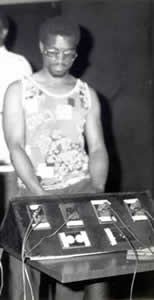 Plummer- Well by that time I would have been 21 or 22, had gone off to college, come back home and I started working in a high end audio store in Brooklyn called Audio Exchange – later became part of Harvey Sound. It was right on Flatbush Avenue down the block from Sears. So I was working and I was sort of like a schlepper. I had little odds and ends jobs cleaning, selling, managing stock, etc. I did not know what I wanted to do, didn’t have a career or anything in mind, but I picked up on a lot of the technical aspects of the equipment we were selling. A lot of sales engineers would come in so I would listen and I would have a keen interest in some of the stuff. I don’t remember the sequence of events but I met this guy who often came into the store and bought equipment and we hit it off. We called him Action Jackson.
Plummer- Well by that time I would have been 21 or 22, had gone off to college, come back home and I started working in a high end audio store in Brooklyn called Audio Exchange – later became part of Harvey Sound. It was right on Flatbush Avenue down the block from Sears. So I was working and I was sort of like a schlepper. I had little odds and ends jobs cleaning, selling, managing stock, etc. I did not know what I wanted to do, didn’t have a career or anything in mind, but I picked up on a lot of the technical aspects of the equipment we were selling. A lot of sales engineers would come in so I would listen and I would have a keen interest in some of the stuff. I don’t remember the sequence of events but I met this guy who often came into the store and bought equipment and we hit it off. We called him Action Jackson.
He was a handy guy who could build anything. He later worked with the DJs Fantasia. He told me about this guy down at Riis Beach who had the people jamming. I kind of knew from listening to the WWRL or WLIB-FM radio station that Frankie Crocker and the other jocks used to have these basketball games down there on Sundays during that summer (1972-73).
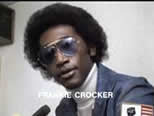 So I got really interested and went down there one time and Maboya was there. I never heard him before that day, but all I could see was this sea of people on the beach just dancing, rocking and having a good time to this mostly Caribbean music played by him. But when I looked at his equipment I was like “Wow,” this is not rocket science! So my friend Jackson and I felt if he could do this, we can do this and because Maboya was running a couple 100 feet of zip cord (18 gage wire) for power, we knew that was part of the problem why his sound didn’t sound anywhere near as good as it should.Plus he just didn’t have the right equipment for outdoors at the beach.
So I got really interested and went down there one time and Maboya was there. I never heard him before that day, but all I could see was this sea of people on the beach just dancing, rocking and having a good time to this mostly Caribbean music played by him. But when I looked at his equipment I was like “Wow,” this is not rocket science! So my friend Jackson and I felt if he could do this, we can do this and because Maboya was running a couple 100 feet of zip cord (18 gage wire) for power, we knew that was part of the problem why his sound didn’t sound anywhere near as good as it should.Plus he just didn’t have the right equipment for outdoors at the beach.
Troy- Damn
Plummer- So we put our money together as well as our time and sweat and we started building six and seven foot folded horn bass enclosures.
We would then go out and buy these 18 inch Cerwin Vega’s speakers from downtown Manhattan that could handle 500 watts RMS each.

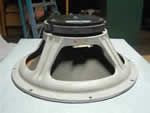

Next we would put together a rack of Phase Linear power amplifiers and then we plugged our equipment directly up to the light poles out there.
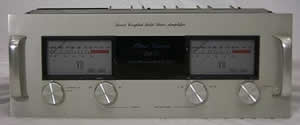
Troy- And you haven’t played a record yet?
Plummer- Your right we haven’t played a single record yet…never knew how to play a record at that time. All I knew was this guy was playing and he wasn’t mixing either.
Troy- Did he have two turntables or one?
Plummer- He had two but it was like one record would play and then he would play the next record. So when we went out there…I heard by this time the folks in the gay clubs mixing with two turntables and having a mixer. So I went out and bought myself a studio mixer that wasn’t real expensive; it was a semi professional Tascam mixer. So it had 16 channels, 8 stereo channels and an 8×8 matrixed output. It was difficult to operate for disco, but we put this stuff together and we went out there and rocked the place! All I remember the next day (Monday) was Frankie Crocker saying on the radio program that there was this guy down there at Riis Beach name Ron Plummer and that “you could hear the music coming off the bridge.” And that was where I got my name Ron Riis Beach Plummer from.
Troy- I got you.
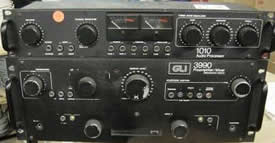 Plummer- So from there the different promoters like Winston, M Morton Hall and Harris and Lindsay, the Dow Twins, Batch and Gordon, Frankie Assoon, etc…there were a whole number of them and they would start coming at us to book us for gigs. I remember my first gig because you always remember your first gig and it was at the Raspberry Freeze which was down in the Village right down the street from the Blue Note Club. It was in the basement and it had these little triangle mirrors on the wall. I wasn’t a professional sound engineer at the time, but I did understand much of the theory. So when we went in there, we were just too loud. We were knocking those little mirrors off the walls (Plummer is laughing) and so we learn over time. But at the same time I was still working in the store and I fortunately happened to meet the engineers who started GLI and designed the GLI mixer.
Plummer- So from there the different promoters like Winston, M Morton Hall and Harris and Lindsay, the Dow Twins, Batch and Gordon, Frankie Assoon, etc…there were a whole number of them and they would start coming at us to book us for gigs. I remember my first gig because you always remember your first gig and it was at the Raspberry Freeze which was down in the Village right down the street from the Blue Note Club. It was in the basement and it had these little triangle mirrors on the wall. I wasn’t a professional sound engineer at the time, but I did understand much of the theory. So when we went in there, we were just too loud. We were knocking those little mirrors off the walls (Plummer is laughing) and so we learn over time. But at the same time I was still working in the store and I fortunately happened to meet the engineers who started GLI and designed the GLI mixer.
Troy- Alright Plummer hold that thought for a moment about the GLI speakers and take me back to that first day at Riis Beach and you playing those records for the very first time. What did you listen to before you became a d.j. that day on Riis Beach and this was at 21 years of age? Usually people start d.j.ing on the turntables at at least 12 or 13 years old, you starting at 21. What were you listening to before that?
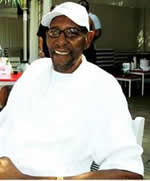 Plummer- Well back then all of the folks that were out there that I knew about were older guys. Pete D.J. Jones is older than I am.
Plummer- Well back then all of the folks that were out there that I knew about were older guys. Pete D.J. Jones is older than I am.
The Smith Brother and I are about the same age. QJ is about 5 or 6 years older than I am. Now again they may have started earlier but they too started in their early 20’s, maybe. First of all you have to think about it, if you are going to purchase and maintain this kind of equipment you have to have a job.
Troy- I understand that but a lot of brothers would take pieces from here and there or their family members had some money to buy them a system.
Plummer- That didn’t start until after us I think! People were doing the basement parties and stuff like that but with the parties they were doing were with their home systems; you didn’t need that much power in a basement.
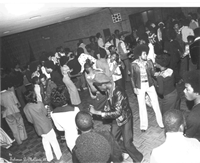 Troy- But from the age of 15 to 20 what type of partying were you accustom to?
Troy- But from the age of 15 to 20 what type of partying were you accustom to?
Plummer- We played records but coming from a military family I wasn’t out there. Prior to college, track consumed must of my life. So I wasn’t a real party freak. When we went to party’s it was the track guys hanging out together.
Troy- So when you guys were going out what was the sound that was going on at that time?
Plummer- The Motown stuff, James Brown.
Troy- So you guys had your block parties as well at that young age?
Plummer- Well I remember when my father was in Vietnam one summer and our mother let us have a couple of parties. About 20 people would come and crowd the basement and we would put the red light on. No alcohol because mom wasn’t going to let that happen. But you know you had a good time. Now I had known about other parties and I had gone to other parties but because we track guys hung together, we didn’t get high. I knew folks that were getting high with reefer and stuff like that but I was too scared to because that would have ruined my track career and track was my ticket out of the house.
Troy- So what about the radio during that time?
Plummer- Well that was WLIB-FM and WWRL, you had Hank Spann and Frankie Crocker.
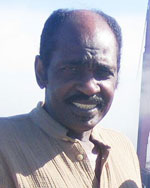 Hank Spann
Hank Spann
Troy- Was Cousin Brucie apart of it?
Plummer- Yes but he was on ABC and WMCA, I really didn’t listen to him that much. Frankie Crocker had gone over to WLIB-FM by this time. The interesting thing about him was he had this monologue. So he was one of the first cats out there rapping to the ladies and whose monologue was something like, “there are seven wonders of the world, you are about to be entertained by the eight!” You could probably find that clip somewhere on the Internet. But Crocker would do like love rapping. He was talking to all the ladies over the music and stuff like that. So it wasn’t like rap in the context that we know it as. Now Hank Spann on the other hand was sort of edging towards that but it wasn’t what hip hop ended up being. But these are the guys that use to talk in between the records.
Troy- Similar to the Last Poets or something like that?
Plummer- Yeah similar to that to that kind of stuff but it wasn’t as polished as the Last Poets it was more impromptu. Gary Byrd also used to be a big radio jock, and they carried it to a different stage.
I am going to jump ahead real quick just to give you context here. When we started rapping, I think Pete was the first person I saw with someone rapping on the microphone; he had KC. KC would take the mic and he would talk over and between records hyping the crowd. It was the same year, either 72 or 73 he would talk over his mic. Then one day this guy came up to me and said he thought he could help me out in with my mixes. He said, “Because you don’t have perfect mixes every time!” But I was getting much better.
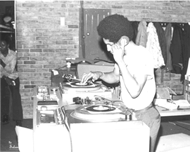
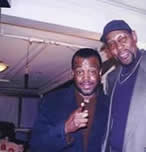
D.J. Plummer K.C Prince of Soul and Pete D.J. Jones
What also happened is I began learning about the record company circuit where you get demo records. I use to go to all the record companies and because I had a name I could go to the record companies directly and get promos. So I realized rather quickly that there was good music at the gay clubs, so I visited the gay clubs and listened to the DJs mix and that is really how I learned to mix. Then I was kind of intrigued with Grand Master Flowers because I felt he was the best mixer out on the mobile circuit and Flowers mixture of music was broad because he played rock, hustle and funk.
Troy- I am going to come back to Grand Master Flowers, take me back to Riis Beach. What came across your mind especially seeing that sea of people? Also who did you come on after or before?
Plummer- D.J. Ras Maboya was out there and I have to say I felt bad about it later on. When we turned our system on, the difference was like a night and day.
Troy- Damn you blasted him.
Plummer- Yes and the quality was unbelievable. The one thing Jackson and I agreed to after we heard Maboya and after listening to a couple of other folks, we agreed that some people had loud systems but they distorted the sound. See they would just turn their system up so loud that they would become distorted and hurt your ears. We said that we are going to make sure our sound is loud, but very clean and not distorted. We can turn it up so loud that you can walk past our bass speakers and your pants leg would ruffle but your ears would not be ringing at the end of the night!
Troy- O.K.
Plummer- We got big powerful amplifiers (700 watts RMS per channel), we didn’t skimp on them either. And I knew if you over tax those little amplifiers and go into distortion, you can also end up blowing up all your speakers that way. Now with Maboya that day it was the late afternoon 3 or 4 o’clock and we agreed to play a certain amount of time and he agreed to play a certain amount of time as well.
Troy- O.K. now Maboya went on first and you let him rock for a long time because he is Maboya and he got the crowd and no one is really expecting anything from you and Jackson because no one has heard of you guys although the crowd see’s the system looks strong.
Plummer- Everybody is coming around and looking at our equipment and wondering who the heck are these guys and what the heck is all this equipment!
Troy- And you guys have not played a record yet!
Plummer- We had not played anything yet.
Troy- So when you did turn up that system did he ever come back on again.
Plummer- I don’t remember, I just really don’t remember. I know I felt bad about it because it was such a night and day difference. But you know what Maboya was still one of the top DJs out there so it must not have deflated him that much. Maboya is Panamanian so he really had more of a Caribbean aspect to his music. That was how I learned how to mix Caribbean flavors into my repertoire. The thing about that is we kind of traded off of one another. We all learned from each other. So I came out the gate mixing, but I really didn’t know how to mix. I was mixing by gut instinct and I didn’t think I was all that good. It was more that the people were telling me that I was a good mixer. But as time went on I just learned how to mix. I catalogued my records and I would spend hours and listen to the beats and figure stuff out then I tried to mix records together that had messages in them. I started going to the record companies getting material that you never heard on the radio and I began introducing that stuff into my mix. But the difference then was it wasn’t like a got’cha type thing where you were out to kill someone. It was like friendly competition and you still competed to win. So with the Maboya situation the next day Frankie Crocker said there was this guy name Plummer out there and you can hear the music coming off the bridge!
Troy- I read that in an article, did you get to meet Frankie Crocker that day and he told you that?
Plummer- No I heard him say it on the radio the next day.
Troy- Damn so how did that make you feel?
Plummer- Oh of course that felt cool.
Troy- Did you get a chance to meet him later on in life?
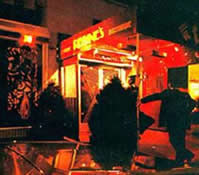
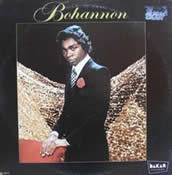
Plummer- I met him once at a club, Leviticus. We were there for Bohannon who was doing a press release for a new record. So we shook hands but he was a really big politicking guy. We shook hands finally meeting and he was friendly but there was so many people there he was playing the crowd.
Troy- I understand. Now how would you label the music you played during that time? Would you call it dance music, Disco music? What would you label it?
Plummer-Well we called it Disco at the time but it pretty much was dance music. Now you had a lot of the Philadelphia stuff that was coming of age at that time. People were doing the hustle dance. Flowers had a broad range of stuff but he played a lot more funk and rock than anybody else. I played predominately hustle. Although I mixed in James Brown, Cameo, Gap band and lot of music similar to that kind of stuff. But I mainly stuck to a lot of the Philadelphia stuff in the beginning.
Troy- So that was what you really cared for the Philadelphia sound, what about the New York groups?
Plummer- Well we had all of them. You had the Donna Summers, Gil Scott Heron and The Bottle and all that kind of stuff. The gay clubs were exclusively the hustle type of stuff. Not all of them but the major ones.
Troy- So what music Plummer would not play?
Plummer- (after a long pause.) There wasn’t any of the misogynistic stuff out at that time. So I can’t say there was anything that I heard that I wouldn’t play and the gangster stuff had not hit on the scene either at that time. So there was nothing that came across that caused my moral antennae went up.
Troy- So what about that European sound?
Plummer- Yes we had the Spandau Ballet, the jungle stuff like the Kongas. We had some German stuff Kraftwerk. Donna Summers music was a bigger hit for Europeans than Americans. Gloria Gaynor was more of a New York person. She was a big Disco icon. It was all over the map because I would mix in even some of the old Motown stuff if it was danceable.
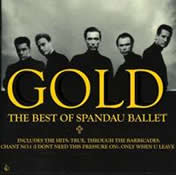
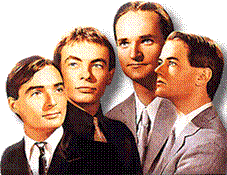
Troy- Well I was thinking about that also was there any way possible you could mix in slow stuff? Love songs like the Stylistics and Delfonics?
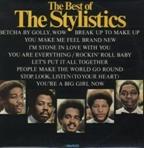
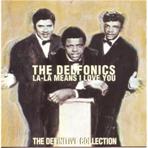
Plummer- Well that’s one big difference between us mobile jocks and the club jocks.The one thing when I visited the gay clubs I didn’t hear was slow music and from the house party days we knew you had to play the grind music. So we incorporated, we would get everybody ramped up, sweaty and stuff and then we would slow it down and people would go to the bar, which was how the club made its money.
Troy- So this would happen around 3 o’clock in the morning?
Plummer- I would do this maybe once an hour. It wasn’t like clockwork but you would feel the tempo, everybody got to the highest height that you were going to take them and then you slow it down. I used to play two, maximum 3 slow records and then we would start back up.
Troy- o.k., so you said the Raspberry Freeze was the first club you played out.
Plummer- Yes Raspberry Freeze was the first.
Troy- And what became your house club that you played?
Plummer- My house club became Jimmy’s on 52nd street between 5th and 6th avenue in Manhattan. Down the street from the 21 Club in the early years and The Promoter in Brooklyn towards the end. I got the Jimmy’s gig through the Riis Beach jam. Harris and Lindsay were the promoters there and they had a deal with the owner of the club.
Troy- So the Riis Beach party was like a calling card for you and your inexperience made no difference to them?
Plummer- Well you have to remember this is sort of the beginning of that era because people were not really used to the mixing at all. So, even if I made mistakes people were not used to it they were just used to people taking records and switching between them. As far as my record selection I must have played the right stuff – I intuitively played the right stuff because people were jumping. It wasn’t like I had a mission or strategy, I played what I felt was the right thing to play.
Troy- When did you get crowned D.J. of the year, who were you going against and who held this contest?
Plummer- It wasn’t like a battle. Sort of after I won, that is when the battles started.
Troy- (Troy starts laughing.)
Plummer- I remember the two battles I played in. One was at the Manhattan Center with me, Flowers, Pete D.J. Jones and the Smith Brothers. Somebody else was in there with us I just can’t remember who at the moment. So we would all play for at least an hour or so. To be honest the people that were closest to us like the groupies, they were the ones most interested in the competition. Everyone else just wanted to party.
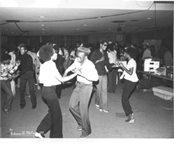
Troy- Did you have a favorite record you would play that you knew would get the crowd up and going crazy in these battles?
Plummer- Love is The Message MFSB was the de facto Disco National Anthem. But the folks on the floor could care less, they just wanted to dance. Then the second battle would have been at the end of 1975 and the early part of 1976 as I remember. On New Year’s Eve a bunch of promoters rented out the New York Coliseum. It was once again Flowers, Pete, me and The Smith Brothers… You would have to do the research to find out all the people who were involved. As I remember we were all on different floors and we all were playing simultaneously. Being as it was different floors with different ball rooms the music did not interfere with each other.
Troy- So that had to be some hellified partying going on with all these great dj’s in there.
Plummer- It was but I felt uncomfortable in there because it was too much echo in there. I don’t know how people were dancing in there but they were.
Troy- So how did that d.j. of the year thing go down?
Plummer- That was 1975. Harris and Lindsay well known promoters had a survey and I can’t tell you who they surveyed, I don’t know. But evidently they made most of the parties and I was the one crowned dj of the year for 1975.
Troy- What year was that you went into Riis Beach?
Plummer- The Summer of 1972 or 1973.
Troy- So once you were crowded things just sky rocketed for you? I say that because it appears that you did a lot of college parties!
Plummer- Yes places like Penn State, SUNY-Cortland, I was up at the woman’s college up in Skidmore New York, out in Long Island and even in New Jersey and Pennsylvania. Then I started doing a thing for a group called the Four Horsemen on Monday nights at a place called Don Quixote in Matawan New Jersey. I was surprised that New Jersey folks came out but that was really nice for a while. So by then I learned to configure my system such that we didn’t need those big horns and stuff anymore so we scaled the system to make it appropriate for the facility that we were playing in.
Troy- So as time is going by are you now building a crew?
Plummer- That started right from the beginning. I don’t know how it happened but people saw that I needed help so there were some people and I still have contact with some of them today (Rob, Norman, Junior, Sedley, etc.) although most of them moved down to Atlanta. But during those early days they would just come by. We would have a schedule and we would just go. I didn’t make any money, I wasn’t thinking about any money. I didn’t have the entrepreneur spirit or anything I was having fun. I couldn’t afford to pay them salaries so we would take them all out. I would do whatever I could but they were having fun too so it didn’t matter. So from the money I made, I spent it either on the folks that helped me, transportation, my equipment and records I couldn’t get from the record companies.
Troy- You say you didn’t really make money but it is a possibility that you really could have made a lot of money because you were the hottest d.j. in New York City. Guys have told me they were banking hard! Now let me tell you there were other guys that did parties before these hip-hop records came out and they were happy just making pizza money. They said they just wanted to get on the stage and perform, did you have that state of mind?
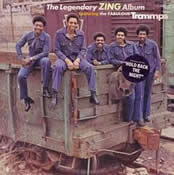 Plummer- We thought about that aspect of making money. I had a girl friend and she was helping me out and we eventually got married. She was helping out with a friend I met in Long Island who is now living in Florida. We would rent trucks and stuff like that, we were thinking about making it more formal. But by that time the opportunity came for me to get with the disco group the Trammps.
Plummer- We thought about that aspect of making money. I had a girl friend and she was helping me out and we eventually got married. She was helping out with a friend I met in Long Island who is now living in Florida. We would rent trucks and stuff like that, we were thinking about making it more formal. But by that time the opportunity came for me to get with the disco group the Trammps.
Troy- O.K. we are going to get to that, but for the 2 or 3 years you partying did that was your 9 to 5? You didn’t have another job?
Plummer- In the day time I was working at Harvey Sound (formerly Audio Exchange) and that was a fortunate thing because that is where I met the engineers from GLI. This was before the GLI mixer came out, which I had a prototype of.
There were very few other people that did as well; Larry Levan had one and I had one. I think I got it because I spoke the same language as these engineers and I was helping them market their creation. By then they had introduced me to Richard Long and that was how Richard and I got cool and we would go down to his studio and lab in Manhattan. I knew Richard was a brilliant guy and a lot of people didn’t even realize or understand how a guy with a Masters degree in mechanical engineering from Cal Tech would be in this business.
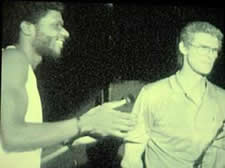
Larry Levan and Richard Long
Troy- His name is very popular with the building of music but I did not know that he had a Masters degree at such a prestigious school.
Plummer- Yes, so he knew what he was doing. Now I wouldn’t say I was the best mixer around, but there were people that said I was a pretty good mixer. The same time in say 1973 I was doing the clubs and stuff like that, this guy Sedley Bloomfield aka Sedley B came along and he asked if he could take the mic.
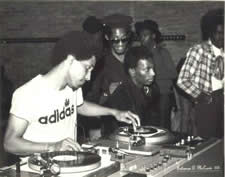
D.J. Plummer, Sedley B sitting next to the console
He takes the mic and he started rapping like Hank Spann on the radio. I thought it was cool because I thought he was covering up my mistakes that no one else heard because of him. Sedley did it with a lot of finesse, he wouldn’t talk too much, he wouldn’t talk too little and he was also a good dancer, with and e impeccable sense of timing.
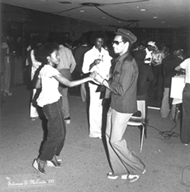 Also I had a crowd following me around that were good dancers too. They would get out there and they knew the type of music I was going to play and stuff like that, so lots of times they were sort of helping the party more than anything else because they would be up there dancing, and then everybody else would get up and start dancing too.
Also I had a crowd following me around that were good dancers too. They would get out there and they knew the type of music I was going to play and stuff like that, so lots of times they were sort of helping the party more than anything else because they would be up there dancing, and then everybody else would get up and start dancing too.
Troy-Did you ever play Harlem?
Plummer- Yes I remember playing up in City College. I can’t really speak on the party that night (don’t remember details) but I knew the area. My mother’s uncle John owned a brownstone up on Edgecombe Avenue and we used to go there all the time when I was young. Also when I was 21, I had a girl friend up in the Drew Hamilton projects around 144th street, so I knew the area.
Troy- So that night you played in Harlem did you notice a difference in the crowd. What I guess I am trying to ask you is can you pick up on tempo of the crowd were you have to adjust your music?
Plummer- I did that intuitively; I didn’t have to think about it and this was a college crowd, so they must have had a ball or I would have remembered it. There were a rare few times I felt I didn’t have the crowd andI would struggle to get the crowd back but they just weren’t dancing and I felt I was a flop; like a comedian I guess feels when he tells a bad joke.
Troy- Yes
Plummer- (Plummer chuckles.) But many thought evidently that I didn’t flop.
Troy- Well to tell you the truth I am very amazed you left the whole d.j. game and went over to The Trammps. But I am going to come to that in a second.
Plummer- Well things happen for a reason, every since I won that d.j. award in 1975 one of the things that I noticed happened was all of the sudden people were coming to see who this guy Plummer. So, the crowds would get bigger at the places I was playing. The thing that would happen is people would come up to me and ask me to play the Top 40 stuff over and over and over again and one of the things that happened is that I matured in my selection of music. I was still trying to play to the crowd but I had not figured out how to deal with the Top 40 folks. As long as you played stuff they heard of, stuff they played on the radio they were happy. If you tried to mix something else in no matter how great or danceable it was, it seemed as though they were listening instead of dancing and I never got used to that. That was a surprise for me. So I had to recover from that and I did evidently because those people were still coming to my parties but I lost the spirit then and it became sort of like a job by that time.
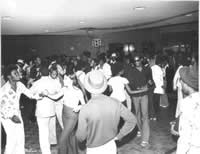 Troy- So some of the fun was taken out of your work!
Troy- So some of the fun was taken out of your work!
Plummer- Yes, see I wasn’t in it to make a lot of money, that wasn’t in my mind. Had I seriously thought about that I don’t know if I seriously would have gotten as far and as fast as I did. The reason why I bought up Sedley is because he sounded like Hank Spann on the radio, so he was rapping over the records and all of the sudden between Pete d.j. Jones and myself we had a guy to rap over our music and then Flowers too got an m.c or two. Like I said we copied off of each other and so we all just got better every quickly.
Then there was these guys called the City Steppers (Flame, Michael, Dungie and Doc) and Sedley knew these folks. These were the guys that would take the card board out there and they would start doing break dancing and stuff, this was 1973, 74 and 75 I guess. They would come with us and do all this fantastic stuff and it just seemed like it happened so quickly.
Troy- Where did they come from did they just attach themselves to you?
Plummer- Yes, all these were high school kids or recent grads, and they found a way to contort their bodies and stuff like that. They were a bunch of kids and somehow it became competitive thing for them. I didn’t have them that often but they would come and they liked my music so they said,”Can we do this and I said fine.”
Troy- So you had guys like Rubber Band, Flame, Doc and etc.
Plummer- Yes I remember them and most of them are in the Atlanta area now. But to be honest with you they were cooler with Sedley then me.
Troy- How is Sedley doing today?
Plummer- He went to school for engineering, got a degree and later on he went into acting. He’s out in California now.
Troy- So this music bought you d.j.’s together into some sort of union. You said you categorized the music 3 different ways as spoken word, mix and dance? I bring that up because they have in hip hop 4 elements break dancing, graffiti, m.c.ing and d.j.ing. Was that what you guys actually called it among your peers and fans of the music?
Plummer- (after a long pause.) We never had those kinds of discussions; it had never been done that way before. I mean you always had the radio station d.j.’s of various flavors and they would do play with all kinds of spoken word, different kinds of rapping and stuff like that and then you had the different kinds of radio stations that specialized in different kinds of music and different d.j.’s that had their favorite types of programmed music. But we did everything on the fly and what just made us feel good. So we were inventing all this stuff as we went along. As far as those 3 categories you just spoke about I was really trying to describe to some people at a website (www.deephousepage.com) in a language for people to understand. We had the hip hop kind of stuff or the spoken word kind of stuff and that was sort of when Sedley B came, he would have these rhymes and it would be sort of competitive but most of it was speaking to the women. I would be mixing to the beat of the music and he would have these love poems towards the women. Then the competitive stuff started but by this time I was out of it, by the time Grand Master Flash and them came around I was already out.
Troy- Now you said you never even seen or heard of those guys like Herc or Flash during the time you was in the game!
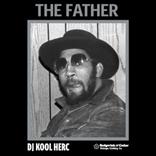
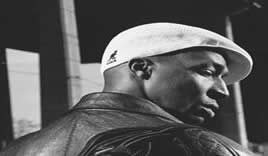
Plummer- Nope! I was gone by then.
Troy- So now when you left the game of D.j.ing and was now on tour with the Tramps, when did you get wind of this new hip hop craze, or did you ever during the early days?
Plummer- Well I knew about hip hop through radio. I use to hear Flash on WBLS.
Troy- So it took like the mid 80’s before you realize that hip hop exists?
Plummer- Well I kind of remember the genre evolving because of some of the music that was coming out. A few years after I had left you had the group Sugar Hill Gang (1979.) come out with a big record and that was right around the time when I was making that transition.
Troy- But you said about 1975 or 76 you got out of the game.
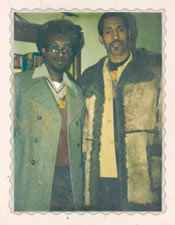 Plummer- Around 1976
Plummer- Around 1976
Troy- Well hip hop was still basically in its infancy with Coke La Rock and KoolHerc up in the Bronx.
Plummer- and I really never heard of them and I have played up in the Bronx a couple of times with Pete D.J. Jones and that was the extent of it. The circles that I travelled in were the folks who’s names you heard on the radio and I have said in the past on blogs you have to be careful to leave it up to our memories because we will embellish since our memories are not all that accurate. If someone really wants to do a research project they could go to the radio stations and start digging into those archives. You heard our names on the promo commercials for the places we were playing at and stuff like that all the time. Contact the promoters and get access to their archives.
Troy- So in time you also became a member of a record pool ran by David Mancuso!
Plummer- David Mancuso owned the Loft, which was the 99 Prince street Loft.
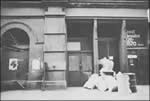
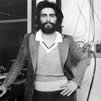
I remember David because he had one of the most eclectic sound systems I had ever heard and this was before Studio 54. So I go into this club and this guy with this huge loft space has Klipschorn speakers. (They look like big bells, like a megaphone turned upside down.) I was like oh my goodness, the sound was just crystal clear and it was a real high quality sound. I thought it was phenomenal, come to find out Richard Long had something to do with it.
Troy- ( Troy laughs.) Damn again, my man. Tell me more about the Loft.
Plummer- Well before it was called the Loft this club was called 99 Prince street and the address was 99 Prince street.
Troy- O.k and it was a club that was inside of a loft space?
Plummer- Well he owned the whole building and he had these Klipschorn speakers that are very high end and they are not typically used for sound reinforcement; they are probably used in somebody’s house. But he had the system designed and placed them in the corners (there was a bunch of them) and stuff and they gave a natural bass sound. Then they had the turntables sitting on a platform hanging from the ceiling on chains (like shock absorbers) that way the vibrations wouldn’t come back through the turntables and you wouldn’t get feedback. They also had very expensive tone arms; I mean they spent a lot of money, but the sound was worth it. David’s place was a combination of straight and gay! He liked to party. Then the garage formed right around the corner basically.Then a lot of other clubs around that area ( Soho) opened up.
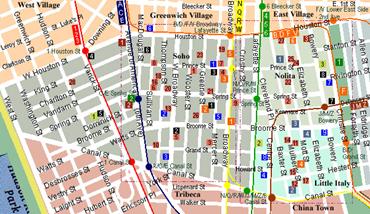
David started one of the record pools. See regarding the record companies I was one of the named folks, so as long as they heard my name on the radio they knew that people were following me and stuff and their records were getting played. So if they gave me records they could sense a return on that investment because I was going to play their music and people would go out and buy their records. But what began to happen is there were so many jocks were getting into the business, they were going up to these record companies for these demo records and it became over whelming. So, the record companies basically said we can’t do this anymore. So that was when the concept of the record pool started.
Troy- So would he be the first to start that idea of a record pool.
Plummer- That I know of, yes, but Eddie Rivera started another one.
{“A music pool or DJ pool is a regionalized and centralized method of music distribution that allows DJs to receive promotional music to play in nightclubs. The music industry sends its newest releases to the pool of DJs; in exchange, the pool provides feedback on each release as well as exposure in their clubs. The person who runs the pool is usually called the “pool director”. Music pools originated as vinyl record pools in 1975 New York City, evolved into CD distribution networks, and later online music distribution between DJs (digital pools). A music pool may have a “brick and mortar” office or may be entirely virtualized.
The concept of the record pool was started by David Mancuso, Steve D’Aquisto and Vince Aletti in 1975 in New York City as a grassroots effort to design an efficient pipeline for swapping information between the music industry and working DJs. Largely used in the United States , the promotional pool system has never really been established outside of the country. The broad term “music pool” eventually arose, reflecting the advancing state of music distribution technology and the shrinking number of vinyl promotional releases, shifts that have caused pools to undergo major transformations in membership and in nature. The modern music pool may distribute music in any high-fidelity form, either physical (e.g. vinyl or CD) or virtual (MP3 and other digital formats).”}
Troy- So you were taking from both of them.
Plummer- Yes
Troy- So with all these records you were breaking and making popular did any artist give thanks to you for making it popular?
Plummer- Ah I don’t know but I remember one person who knew me, but at the time I didn’t know him and you going to freak out when I tell you who because you figure I would know him. It was Roy Ayers!
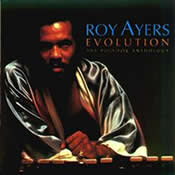
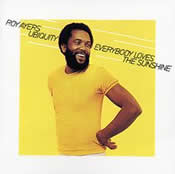
Troy- Oh o.k. my man good music.
Plummer- But when I went up to that company (Polydor Records) he knew who I was and he was really excited to meet me and everything. I didn’t brush him off or anything like thatI just got excited also…but I wasn’t naturally excited becauseI didn’t know who he was. I use to play his records like Everybody Loves the Sunshine and I use to play it a lot. Everybody Loves the Sunshine wasn’t really a fast dance record it was more of a slow dance record. So I would play stuff like that.
Troy- So now you made mention in an article that the gay clubs put on a bigger production something similar to a Broadway play.
Plummer- Oh yeah, it was like going to a Broadway play. They had the balloons, smoke machines and all kinds of stuff to go along with it.
Troy- But at the same token you said it seemed as though they were the more experienced or talented d.j.s as well!
Plummer- Yeah, creative. I don’t want to say much experienced or better, but creativity they had.
Troy- But in what way?
Plummer- Ah they would try stuff, do stuff with the mixes that I had not heard of before.
Troy- So there were times you were at their parties and you said,”damn that was really good!”
Plummer- Oh yeah. (slightly excited.) I would see it and say wow I have to learn how to do that.
Troy- I own a Larry Levan tape of him playing at The Garage. (tape 147.) The tape was like 25 years old so the first time I played it I wasn’t really impressed but I understood it because I heard those different sounds that he would incorporate into his routine while playing his records.
Plummer- Oh yeah a few of us would add sound effects to the records. Now the thing that guided all that stuff was the crowd. The crowd would be feed back to us (sort of like call and response). If the crowd was really into it and the crowd was whooping and hollering and stuff we would play with the treble, midrange and bass. There would be some records where we would take all the bass out and we had those JBL ring radiators (we didn’t have the plastic piezo’s – we used the real stuff). We bought those expensive ring radiators and they sounded just like real crystal balls. So we would take out all the bass and people would go berserk. So we would play with the music all kinds of different ways.
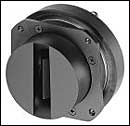 JBL Ring radiator
JBL Ring radiator
So if you heard that on a tape and you didn’t see the crowd you wouldn’t understand and wonder well why did he do that!
Troy- So was there some kind of mixer or something added to a mixer where these other sound effects were coming from say like a beat box or something.
Plummer- Well that’s later on after me, that was like the late 70’s that stuff started to appear.
Troy- Well that was what I was referring to that Larry Lavan had on this tape that I have.
Plummer- O.k so that must have been the late 70’s. because prior to that we mixed that stuff in through the turntables. Also in those clubs because their equipment was stationary and it didn’t have to go anywhere they would have 3 turntables; they would have a turntable with sound effects on it. You also have to realize this is before scratching started.
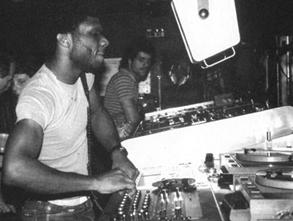 Larry Levan
Larry Levan
Troy- For sure, in fact there was no scratching during your time at all, right!
Plummer- No… not really. Flowers may have played around a little bit because Flowers use to do some crazy stuff. Flowers to me was like the Taj Mahal of Disco.
Troy- I am going to get to him in a moment. When you weren’t playing where was your favorite spot to go to play at and who was your favorite D.j to listen to other then Flowers?
Plummer- Its funny because I didn’t frequent one more than others. We would go to each other’s gigs and there wasn’t that much time because I also had a regular job in the day time during the week. I can’t actually believe I did that stuff… come home 4, 5 o’clock in the morning and have to get up and go to work at 9 am.
Troy- Yeah I know about that it can be a miserable feeling. I will say to myself I ain’t ever going to do this again, and do it the next week! (We both laughed.)
Plummer- I don’t know how I ever made it during those times.
Troy- Was there ever a chance were you guys all stood together take a picture, you, Pete D.J. Jones, Flowers, Smith Brothers, Larry Levan etc.?
Plummer- Not Larry Levan because he was into a different world (the gay clubs). The mobile jocks we all would see each other from time to time. Like I said earlier at the New York Coliseum that New Year’s Eve we were all there together. Pete and I had some quote unquote battles up in the Bronx, you know one-on-one battles, although I don’t remember them as real battles. I think I’ve written somewhere that the difference was it was friendly competition. I mean you compete to win but you didn’t get pissed off at the other person if you lost, because you know that either of you could win on any given day.
Troy- So do you feel there was ever a time you beat him?
Plummer- Oh yeah, we all had good nights and we all had bad nights. At some point it depended, all though some people might have thought I was a better mixer than Pete. Pete had better control of the crowd and he had larger crowds. Pete played a music that his crowd was really into and he played more Top-40 hits. That’s another thing, we all kind of went in different directions and the crowds followed us. The people that kind of liked my music followed me around and after I won the award there were more people coming along and that made me change my music and I can tell it had an effect on the original people that were following me. So that became a dilemma such that I learned to appreciate musicians and artists whom were out there and when it happens to them. Their music appreciation grows and they have to give the crowd 100 percent and then you get to that point where the people that follow you around expect a higher quality of music than the people that come to see you every once in a while and that is a hard balance to strike.
Troy- I understand. Now with all the stick up and violence that was going on up in the Bronx parties how did you deal with the tough guys in your parties?
Plummer- I don’t remember ever having those types of problems.
Troy- Never?
Plummer- No and I guess you have to realize these are the clubs downtown so when that stuff started once again like I said earlier I was gone! And I do remember there were some clubs that did have that going on from time to time but that was after I left the business. While I was in the business these promoters could not afford that to happen because that was their livelihood. You might get away with it the first time but after the second time those club owners felt it was too much liability and you basically couldn’t come there anymore. I might have had individual issues were somebody might have been too drunk and the bouncer handled them but that gangster stuff had not started.
Troy- How did you deal with the groupies?
Plummer- Well to me the groupies are the ones that hung around. There were two types of groupies, there are the ones hanging around for a free ride, free meal. See, I would take my people (entourage) out and have breakfast after the gig was over and I would pay for it all. So I had an entourage of about 10 or so people. That’s why I told you I didn’t make any money, you had to rent the van and carry the equipment. Those were my expenses. The other type of groupie were the dancers and they use to follow me around because they felt they were having a good time and also a lot of times they could get in the clubs for free because they were with us.
Troy- So there was never that 3rd type of groupie were chicks were pulling on you trying to get with you sexually in the bathroom or after the party?
Plummer- No I didn’t experience any of that until the Trammps.
Troy- I am surprised to hear that. O.K. I am going to throw out some names give me some feedback on them any way you like or as long as you like. First up Grand Master Flowers. Now what I have on Flowers is he darkened the labels on his records. Flowers also made you expand your music after you heard him play James Brown and Babe Ruth together.
Plummer- Oh yeah I thought that was cool. Flowers was different kind of mixer. You go into the gay clubs and they use to play a lot of hustle type dance music. They also played with the music with the highs and lows and mix with the sound effects and stuff. But they would not pull out the Funk, or they would not go into rock. Flowers was sort of like a Jimmy Hendrix he would do everything and you were always learning from him. But the thing about him is he played these games, he would darken his records and stuff. A lot of times we knew what it was and if we didn’t we would make it our business to find out. But it wasn’t a cut throat type of thing. He and I had a pretty good relationship, we didn’t ever sour our relationship. People would talk junk but we knew it was just that, junk. But you know between myself, Flowers, Maboya and Pete D.j. Jones you heard our names on the radio more than anyone else.
Troy- So did you know about his drug addiction and later death?
Plummer- Yes I knew about that because a few years afterwards they had a reunion party in Brooklyn and Flowers wasn’t there and somebody told me then that he had this addiction to drugs. When I talked to Sedley a year ago he said he seen Flowers some years earlier, went up to him and actually tried to help him out get straight. Sedley said it hurt him because Flowers didn’t want any help. When I found out Flowers died I wasn’t really surprised but I was hurt as well. See I heard about the folks he was hanging around with as well as the rumors of him hurting his self.
Troy- So say all your contemporaries are standing in a room, you, Flowers, Pete D.J. Jones, The Smith Brothers and Maboya… was Flowers looked at by all of you guys as the King because of his skills and showmanship? And I don’t mean that in a negative or sarcastic way but did you guys look at him as though he was truly the most skilled artist at what you guys did!
Plummer- Ah…it depends on who you talk to, some people were really into the stuff Flowers played. Now let’s separate when they met Flowers, because Flowers also wasn’t the most personable guy on the planet. I got the chance to know him a little bit so the stuff he would do wouldn’t phase me or anything. So, we had a pretty good relationship but he could turn people off that didn’t know him pretty quickly.
Troy- So he had an arrogance about him?
Plummer- Yes there was, if you didn’t know about that arrogance and you listened to the music and you were into the funk, the west coast stuff, the rock stuff you really thought he was god-like fantastic. So a lot of people thought he was better than anyone else. If you were more into the Philadelphia sound, you were more into hustle and two-hand dancing. People were doing all kinds of creative stuff with the hustle both fast and slow. And when I say two-hand dancing it is hustle dancing, though similar to ballroom dancing and we were doing it with disco music. The tempo of music was up-tempo so they were coming up with all kinds of creative stuff and let me put it this way there was a lot of partner dancing.
Troy- So did Soul Train have any effect on you at all?
Plummer- I would have to say the Soul Train era had some effect on me, the music anyhow – it was going on during the same years. The Motown sound base I would say because that was basically Motown stuff it then evolved when Don Cornelius expanded a little bit.
Troy- Alright tell me about that James Brown and Babe Ruth mix by Flowers.
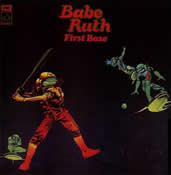 Plummer- Yeah when Flowers played that I didn’t know who Babe Ruth and The Mexican jam was and so when I heard this high shrill voice and with this Spanish sort of sounding instruments in the back and I thought this was cool because it just blended so nicely and only Flowers would do something like that, at least at that time. Later on everybody else started doing stuff like that as well. So Flowers helped me because then I would play J Geils Band (Give It To Me), mix that into one of my records because it really had a great danceable break in it. I remember Loggins and Messina (Pathway to Glory) with an equally danceable break…I came from an R&B WBLS kind of back ground so I wasn’t really that hip to rock. Although I liked Jimi Hendrix I wouldn’t say I was a big Jimi Hendrix fan.
Plummer- Yeah when Flowers played that I didn’t know who Babe Ruth and The Mexican jam was and so when I heard this high shrill voice and with this Spanish sort of sounding instruments in the back and I thought this was cool because it just blended so nicely and only Flowers would do something like that, at least at that time. Later on everybody else started doing stuff like that as well. So Flowers helped me because then I would play J Geils Band (Give It To Me), mix that into one of my records because it really had a great danceable break in it. I remember Loggins and Messina (Pathway to Glory) with an equally danceable break…I came from an R&B WBLS kind of back ground so I wasn’t really that hip to rock. Although I liked Jimi Hendrix I wouldn’t say I was a big Jimi Hendrix fan.
Troy- I am not either but I do care for The Watch Tower and maybe Purple Haze after that I can’t really swing with too much else.
Plummer- Yes, he was just such a good musician.
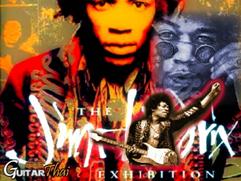
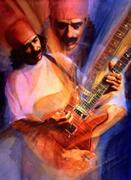
Troy- So what about Santana did you also incorporate that into your music?
Plummer- Oh yes he had a lot of danceable music. See that Latin music you would not hear in the gay clubs but we played a lot of Latin as well as Salsa. See the Cheetah was the big thing around in NY at that time so all the Salsa stuff was at the Cheetah.
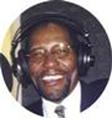 Troy- O.k. next up Pete D.j. Jones.
Troy- O.k. next up Pete D.j. Jones.
Plummer- My man Pete.I don’t remember how I first met him most likely at a gig. But Pete and I have always had a good relationship. We hit it off right away and we never had any bad words towards each other.
Troy- He definitely seems like a super nice guy.
Plummer- Yes I remember he was a lot older then I am and he too had a day job.
Troy- He was taller then you also?
Plummer- Yes much taller. Pete is like 6’4 6’5 or something like that.
Troy- I think more in the 6’6′ area and a ball player back then.
Plummer- O.k. and I am like 5’10. Pete had a city job working for the city of New York doing all this stuff. Like I said he was much older than I and he had been doing it longer. I remembered looking at Pete and saying he had not gotten into the mixing thing like Flowers or the gay clubs had and I was learning very quickly. So in a way I looked at Pete as not being a real good mixer but Pete played the right music for the crowd. The crowds that were listening to the radio, the top 40 kind of stuff, Pete had that crowd and he ruled that type of crowd. And I wouldn’t say he wasn’t skilled because it takes skill in learning how to play the right records at the right time but he didn’t have the finesse of the actual technique of mixing and he would tell you that wasn’t really what he was into. He was about having a good party.
Troy- There were times during this interview you have said, “Us.” Did you have a back up d.j. or something like? I don’t think you played every night, all night, through your sets by yourself.
Plummer- In the early days during my time I did, it was just me. Then towards the end I would let my girl friend at times and others from the crew relieve me on the turn tables. I didn’t get married until 1977. What happened was that we accidently booked two gigs the same night and were trying to figure out how the heck were we going to do that. I had enough equipment so that wasn’t a real issue. So my man Norman Thompson, Rob and my girlfriend went to one place known as the City Center which was a big tall building in the 50’s on the west side,it was in way up in this skyscraper in a club on the 40th floor. So my girl friend and my homeboy played there while I played at Jimmy’s that same night and I ran back and forth. So to answer your question I didn’t really have a back up. When we did that at the two clubs at the same time it had to be about late 1975 going into 1976. So she was really the only one and sometimes the crew because they heard me enough that they pretty much knew my mixes.
Troy- So did your girl get pretty good before you left?
Plummer- Well what happened is it never took off and it is not because they were bad mixers, people were saying they paid to see me so that was the disappointment. So in that case I could have been having a bad night but they still came to see me.
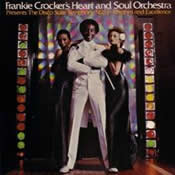 Troy- Alright, is there anything you could say about Frankie Crocker?
Troy- Alright, is there anything you could say about Frankie Crocker?
Plummer- Well WWRL and WLIB-FM had basketball games and they would challenge each other to these games down at Riis Beach in the summer and the games would be on Sundays, and that was how the crowds started coming. And this was before Riis Beach really got unruly where the fights started and the nudist and the gay folks came, and other kinds of issues that broke out. So this was before all of that. So it was primarily an African American hangout, and people would come out and see the basketball games and oh by the way there was this great music.
Troy- Basically your name was being mentioned for the Riis Beach thing was it mention for anything else?
Plummer- Riis Beach was when it was first being mentioned after that I was on the radio all the time, because promoters were promoting their gigs. So they would buy time on those radio stations to do their promos. People got used to, “Plummer is going to be at such and such club. Harris and Lindsay spectacular this and that featuring D.j. Plummer.” So all that stuff was going on back then.
Troy- So how was your relationship with the promoters were they getting more then you were, and you were the one bringing all the party people in?
Plummer- Well how it would happen is they would say can you play at such and such place, what’s your fee etc, etc, etc and we would then negotiate and that would be that, they are the ones that would make the deals with the club owners.
Troy- So was there ever a time you considered being your own promoter?
Plummer- Not really because remember what I said earlier my heart was into having a good time and once it became a job I started losing that edge and that interest.
Troy- So what was the pay like at that time?
Plummer- $150 a night is what I remember.
Troy- and that’s for you and you got all these other people working with you.
Plummer- Exactly…sometimes $75. It ranged depending on where I was playing. Say a place like Jimmys or The Promote which I played a lot. A lot is relative just because I don’t remember. It wasn’t like every single week but sometimes it would be, at least two times a week and it was weekends, other than later on towards the end when I started playing out in New Jersey. Who ever heard of a D.j. coming to play at a place on a Monday night. So it was primarily Friday nights and Saturday nights
Troy- Well the $75 to $150 dollars for 1975 was pretty good.
Plummer- Well it was more than what the most other folks were getting, I think. Now there were other folks that did make it a business and I understood they were making much more because towards the end I heard people were making $500 a night and stuff like that. But I had not gotten to a point where I was negotiating those type of fees because I had relationships with these groups of promoters and we covered a lot of New York City. I mean I was always trying to get more money but I wasn’t trying to negotiate for the maximum possible. I just wasn’t that business mature in a sense at that time.
Troy- Did you ever have a problem with any of those promoters during that time as far as pay?
Plummer- Oh sure, sure, we had our spats. Sometimes when they had a bad day they would try and welch out, because they had to cover their costs. If a lot of people didn’t show up and stuff they had to go into the hole, so of course they are going to try and see if they cannot pay you. Now I got to pay for this truck, I got to pay for all of these people and stuff what are you doing to me! There was one memorable event though that I had and I have talked to with him a couple of years ago (we are friends today), was with M. Morton Hall (Plummer chuckles). I think I was at Jimmy’s and something happened where there was a disagreement. I don’t remember what the disagreement was but I am playing and I am in the middle of my set and he comes up on the stage and wants to talk to me. He’s upset about something so he wants to talk to me and as he comes up on the stage he accidently hits against the table where my equipment is on and so the record skips. Now everyone knows Ron Plummer is a mild mannered person. No one ever has seen me get upset at anything, so I look at him and gave him this stare because you know I was in the middle of my thing and he kind of interrupted the whole thing. I gave him this look and I went back to playing my music and then he did it again. All I know is I went over and grabbed him and lifted him up. I didn’t throw him off stage. I must not have because I know later it would have caused a lot of commotion. But, for me I just remember it being totally out of character and all I remember is when I looked back on the floor everybody had stopped dancing and was looking up towards the stage and I really felt embarrassed. I must have recovered and went on and did my thing. But I didn’t want to speak to Morton for a long time after that becauseI was so pissed.
Troy- So how did you guys get pass that?
Plummer- Oh yeah, yeah yeah I played for him after that. I know what happened, I played for him and he didn’t pay me so I said I am not going to play for you again. (Plummer laughs.) But any way and my wife and I had lunch with him a few years ago about 3 or 4 years ago down in Brooklyn at Juniors Cheese Cake place.
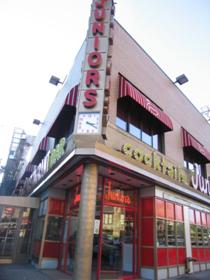 He got in contact with me through the Internet and he was telling me about how there’s a lot of commotion in the industry and people were misrepresenting the truth. He was telling me that people from the Bronx were saying one thing, being denoted as the beginning of hip hop and this and that. Well he really felt hurt because he really felt it was unfair and I kind of had to agree with him from the way he looked at it because when we were coming through we didn’t share about any of this stuff and we were doing all before those particular times. What I said to him was since I wasn’t there I cannot speak to what was going on somewhere else but just like any kind of research project once you are in academia you learn how to do real research and “if it isn’t written down it didn’t happen.” And if it is written down some where you can authenticate and verify it, you can find out the truth, you can get to the bottom of things. See you can get the information and put pieces together and come up with the evidence and stuff. But the thing is real truth has evidence so I told him just go to the radio stations. They are supposed to have that stuff archived and there lay the truth because when you get to our age you forget from one age to the next. Who the heck knows who was out there first? First of all there were radio jocks that were doing it 10 to 15 years before us.
He got in contact with me through the Internet and he was telling me about how there’s a lot of commotion in the industry and people were misrepresenting the truth. He was telling me that people from the Bronx were saying one thing, being denoted as the beginning of hip hop and this and that. Well he really felt hurt because he really felt it was unfair and I kind of had to agree with him from the way he looked at it because when we were coming through we didn’t share about any of this stuff and we were doing all before those particular times. What I said to him was since I wasn’t there I cannot speak to what was going on somewhere else but just like any kind of research project once you are in academia you learn how to do real research and “if it isn’t written down it didn’t happen.” And if it is written down some where you can authenticate and verify it, you can find out the truth, you can get to the bottom of things. See you can get the information and put pieces together and come up with the evidence and stuff. But the thing is real truth has evidence so I told him just go to the radio stations. They are supposed to have that stuff archived and there lay the truth because when you get to our age you forget from one age to the next. Who the heck knows who was out there first? First of all there were radio jocks that were doing it 10 to 15 years before us.
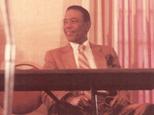 That guy’s name is Jocko down in Philadelphia. (Douglas “Jocko” Henderson, “The Ace from Outer Space”, was a pioneering radio broadcaster whose career spanned five decades. Born in Baltimore in 1918, Jocko began his broadcasting career in 1952 on radio station WSID. The next year he moved to WHAT in Philadelphia, adopted his enduring nickname, and a few months later went to WDAS, developing a rhyming style of delivery that can be seen as a forerunner of many later rap artists. “This is your ace… from outer space… not the duplicator… not the imitator… not the impersonator… but the originator!” It is with great sadness that we announce the death of Philadelphia radio legend, Doug “JOCKO” Henderson, Sr. He passed away at the age of 82 on Saturday, July 15, 2000 at 5:40 pm after a prolonged illness. Broadcast Pioneers member Gerry Wilkinson (former WDAS Operations Manager) said, “Jocko had one of the most unique and pleasant voices in the industry. He was everything legends are made of. He had class and elegance.”)
That guy’s name is Jocko down in Philadelphia. (Douglas “Jocko” Henderson, “The Ace from Outer Space”, was a pioneering radio broadcaster whose career spanned five decades. Born in Baltimore in 1918, Jocko began his broadcasting career in 1952 on radio station WSID. The next year he moved to WHAT in Philadelphia, adopted his enduring nickname, and a few months later went to WDAS, developing a rhyming style of delivery that can be seen as a forerunner of many later rap artists. “This is your ace… from outer space… not the duplicator… not the imitator… not the impersonator… but the originator!” It is with great sadness that we announce the death of Philadelphia radio legend, Doug “JOCKO” Henderson, Sr. He passed away at the age of 82 on Saturday, July 15, 2000 at 5:40 pm after a prolonged illness. Broadcast Pioneers member Gerry Wilkinson (former WDAS Operations Manager) said, “Jocko had one of the most unique and pleasant voices in the industry. He was everything legends are made of. He had class and elegance.”)
Then you have Pete D.J. Jones who was out there and is 10 years older than me and he was out there long before I was. There is a guy out in Brooklyn name Q J.
Troy- Yes I heard about him.
Plummer- Well he used to be out there too and he use to have these four inch reels of tape. He had reel to reel tape recorders and he was mixing with those suckers. QJ had preprogrammed music and stuff but he would take off and put another one on and mix it right on in. 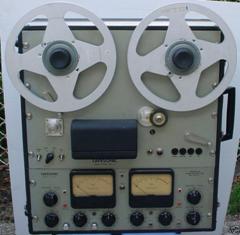
Troy- Well first of all I am surprised M Morton Hall had anything to do with that, you surprised me with that. But the thing is there are different sounds and that is why people are saying it started in the Bronx and Harlem first. And preferably the Bronx where KoolHerc had did it. It’s just different sounds. Like I asked you what did you play dance, Disco or what would you categorize that and you basically said it was pretty much close to Disco…
Plummer- Well the stuff I played in the beginning was more dance stuff, more Philadelphia stuff but very quickly I started looking at what other people were playing and I changed and added stuff so I added funk kind of stuff as well as rock kind of stuff. When I was talking about the spoken word Sedley, and mind you this is 1972, Sedley would talk over the music and have this cadence. That’s why I said if you listened to Hank Spann on the radio, now take that voice and take that cadence and now put it in the middle of two mixes. It was poetry of the spoken word that is out from someone who dances and who has good timing. Then you have these guys that are called the City Steppers who are doing this crazy dancing and twirling. So you put all this stuff together and that stuff was going on. Now the element that the folks in the Bronx had was a different element but all of that stuff contributed to the hip hop era.
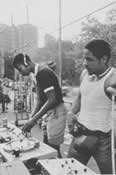
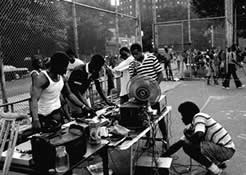
Troy- You make a good point.
Plummer- The other thing you can’t leave out it is when Grand Master Flash started playing for WBLS that’s when it really expanded because that is when people heard it. Well I should say there are different corners where things are starting at the same time. So you would have the d.j.s like ourselves who are on the radio all the time and people would come and see, now most of these clubs we played at you had to be of legal drinking age or you couldn’t get in. So there were no high school kids in these clubs; there were no 13 year olds in these clubs.
Troy- I got you a more mature crowd. Shoes and silk shirts with slacks.
Plummer- Well some people would dress up and other people wouldn’t, but they just didn’t want people coming in jeans and shorts and stuff like that. I kind of had a problem with it even though I grew up in a military household. I had a bit of a problem with authority and so I had a problem with that whole thing about the dress code and stuff because I felt that was fake at least at that time. See I thought it was more of a class thing, but it was just the promoters were trying to make sure that they didn’t pull in a crowd where fights and stuff were going to start. That was their way of minimizing that probability and therefore liability.
Troy- But in the early 70’s wasn’t that just the standard of dress? A silk shirt, polyester pants and shoes. What was the other popular dress of that time for the night people that like to party!
Plummer- Well people wore all kinds of stuff but if you go to the gay clubs they wore all kinds of stuff and it looked like Hollywood. There were some clubs like the Dow Twins clubs that wanted the more after work crowd, you know the shirt and tie folks. So at their clubs they specified that kind of attire of business or casual, but not every club was like that. But at the same time some who didn’t want that after work crowd, the motivating factor was they didn’t want trouble. So what happened is people would hear about us and there was probably stuff going on in the parks and all of that at the same time but the thing that I was most amazed about when I look back on that was stuff transpired so quickly considering those days and times, you think how a message gets across it usually takes a half a decade for societal changes to occur, this stuff happened within a year to a year and a half. It was just massive change within that period of time. So I can’t really say who was first and the only way you would know is o.k. you say you played XYZ at place ABC, prove it.
Troy- Well I have a large collection of those tapes from back in the days, but of hip hop parties, so I can easily paint a picture of the brothers from back in the days. But I understand what you are saying, as far as those reel to reels and even the flyers from back in the days can tell you a story as well.
Plummer- Yes and I need to buy a reel to reel because I have some old reels with stuff that I did. The thing is I can’t date them because I don’t have it written on the label when I actually did that.
Troy- Well you can possibly still find out the dates because your m.c. is on there talking and most likely he is saying things that will give you a time frame, also the music that you are playing is going to give you a time frame as well.
Plummer- Yes that would help, it would narrow it down to…well you are right. But still I can remember when we came out 1972, 73 the gay clubs had been out there they were firing it up. They were spending a heck of a lot more money so their systems were phenomenal and the systems we built were not, you know Magnavox systems. We had sound reinforcement systems so when we went to these parks we had really good quality systems it wasn’t somebody bringing their home system out there.
Troy- No I hear you, you were very fortunate you were in the right spot at the right time.
Plummer- Yes being at the right place at the right time, but I was with the right group of folks so that notoriety spread pretty quickly.
Troy- Well you bring up a lot about the gay clubs how was that for you going up into those spots? I know you love the music but…
Plummer- Well I remember the first club I went up into was Hollywood which was on 45th and maybe 5th avenue and I was scared and as I look back on it now I know what it was. I was scared somebody was going to make a pass at me or something like that. I was going to get upset and we were going to go to fist-a-cuffs or something like that.
Troy- Or hurt somebody and you might go to jail and all that other stuff.
Plummer- Yes so I didn’t know what to expect. I guess I must have conquered my fears and I went anyhow and nothing happened and I really liked the music. I just sat there and listened. I was in the back I didn’t talk to anyone. I just sat there and listened to the music.
Troy- So that music was so good it just started telling you to go to these other gay clubs as well to hear this music!
Plummer- Yes because I thought it was cool it was a kind of thing where this was a world these folks had and they dressed extravagantly they were really having a lot of fun and the music that they were playing and the mixing you knew they didn’t just start that day, they had been playing for a little bit.
Troy- So can you remember any other gay D.j.s that deserve recognition other than Larry Levan?
Plummer- There’s Tee from Better Days in midtown. David Mancuso,
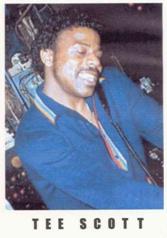
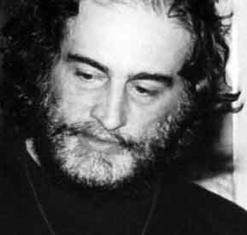
Troy- So were there any other options other than the gay clubs to get a feel for good music?
Plummer- I don’t remember but put it this way when I got time off I was at the record companies, I would be trying to work on my equipment or figure out how to get better equipment, I would go and visit some of the guys like Pete and Flowers and them. I would go to a couple of these gay clubs occasionally but I wasn’t the party animal so I wasn’t out like every week or something like that, so I was very limited in a way.
Troy- Alright so what about say Studio 54?
Plummer- I never went to Studio 54 as a D.j. I went to Studio 54 when I started working with the Trammps.
Troy- So would it have been similar to a Larry Levan jam?
Plummer- Well it was like some of those other clubs but I really didn’t have the chance to get involved because I was working then. When I was with the Trammps I was the guy in charge of the sound when we were on the road and anything that went wrong with the sound and stuff I was the guy.
Troy- O.k. before I get into that tell me about Larry Levan.
Plummer- Well I met Larry through Richard Long. David Mancuso and Larry were good friends as well as Richard Long.
Troy- Tell me about The Smith Brothers.
Plummer- They were on the same circuit we were. They were cool, they also were into power; they were also power freaks. What was interesting is if you were into the equipment…Pete D.j. Jones had good equipment and he would experiment with like BGW and stuff like that. I was the one that would buy Phase Linears, very few people wanted to mess with Phase Linear because they were very temperamental they massive power but when they blew up they took a lot of stuff out with them. You had to keep them cool because they got really hot. The Smith Brothers spent a lot of money on their sound. They bought Crown amplifiers. Crown is an American company from Indiana and they are well known for making high quality audio amplifiers and pre amps and stuff like tape recorders, studio type stuff. The Smith Brothers used to have all these Crowns. They had a good quality sound system and they were from Brooklyn. They were actual brothers but I am not sure if they were twins. We hung out but outside of disco we didn’t have a relationship.
Troy- O.k Mayboya
Plummer- I saw him at a couple of places like Riis Beach but we didn’t have a relationship what so ever and then all of a sudden Maboya disappeared. M Morton Hall told me the rumor was he went back to Panama .
Troy- Alright The Dow Twins
Plummer- Well they were promoters, they were trying to make it and they did well. I don’t know anything about their business dealings and stuff but they seem to have the older 25 and up crowd and the well dressed after work crowd and stuff like that. They were the ones that put Leviticus and Justine’s together. They also had a club in Queens I can’t think of the name right now on Linden Blvd. Later on when the Intrepid came to New York they would do these annual parties around September on the Intrepid.
 Troy- So the Dow Twins were really just promoters and not D.j.s?
Troy- So the Dow Twins were really just promoters and not D.j.s?
Plummer- Right. One of the twins passed away recently. I think Harold is the one that buried his brother Norman.
Troy- Alright Elmo the Magic Christian
Plummer- Yes I remember him. Elmo, M. Morton Hall, Winston, Harris and Lindsay and there are a few more but those are the main ones that were pretty much shuttled to all the big clubs between me Pete, Flowers, Maboya and Smith Brothers and that group.
Troy- KC the Prince of Soul
Plummer- A good rapper, a very jovial guy. I remember him being in the middle of all that. I believe K.C. came first and then Sedley with me, as far as rapping on the mic.
Troy- Is there one thing you can say you seen other D.j.s make a mistake at as you started making your bones?
Plummer- Well remember the arrogance I told you of Flowers and this maybe because of the way I am and remember when I told you my goal was to keep people partying, well Flowers after awhile was so good at his music and knew his music so well he wouldn’t change his music if the crowd just wasn’t into it that day, he played what he wanted to play.
Troy- So people would be standing around looking at him saying what the hell you going to do and he didn’t care. ( Troy is chuckling.)
Plummer- It was rare, but he didn’t care
Troy- So he started getting like my man that plays the trumpet, Miles Davis and turns his back on the crowd!
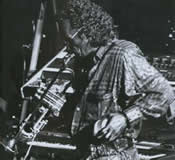 Plummer- Oh yeah, exactly, you know that is a good analogy, I never even thought of that before. But Flowers would be very much like Miles Davis, you know a genius with all that talent built up in him, but could care less.
Plummer- Oh yeah, exactly, you know that is a good analogy, I never even thought of that before. But Flowers would be very much like Miles Davis, you know a genius with all that talent built up in him, but could care less.
Troy- Any other D.J.s that were like that?
Plummer- Flowers was probably the most extreme that I remember, somebody that just knows they are good. Troy you hit it, Miles Davis is probably the best comparison.
Troy- So now how did you move on to the Trammps and what was your role with them? Also were you already a big fan of their music?
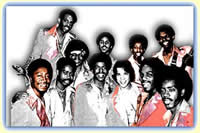 Plummer- Yes I was a fan of them, they had a record out on Columbia records which I pretty much wore out. That Pink album.
Plummer- Yes I was a fan of them, they had a record out on Columbia records which I pretty much wore out. That Pink album.
Troy- Was this before the Saturday Night Fever album and movie?
Plummer- Before the movie and album I got with them. They got really famous after that and that was when we started traveling around the world.
Troy- So how did you get on?
Plummer- There was a club in Brooklyn, King’s Palace (formerly Club My Way) that I was playing at that was right down the street from Kings County Hospital and they had live entertainment. I was the D.j. that was supposed to play that night and The Trammps were going to be the live music. So I was playing music and The Trammps came and their sound system suddenly stopped working during their performance, they didn’t know what to do and I said well plug them into mine. I wasn’t afraid of anything when it came to technology. So I plugged them into mine and they did their show and then Doc Wade who was sort of like the leader of the group (in the sense of the business part of it) came up to me and asked what did I think about traveling. He said go think about it and if you are interested bring enough clothes for a month and meet us down in Philadelphia on 17th street at their office. I don’t know what happened but it was destiny to be in the right place at the right time and I went. I had nothing to lose, the next thing I know I was on a bus going to Las Vegas.
Troy- From that night you walked out of that club you were on the road for the next few years?
Plummer- I was on the road for about 2 years up until the summer of 78.
Troy- And you walked away from the whole business of being one of the most popular D.j.s of your time?
Plummer- Yep (Plummer laughs.)
Troy- Now did you get any response from any of the club members while you were on the road or from your girlfriend like, “Where you are at everyone is asking for you!”
Plummer- Well my girlfriend was trying to do some of the gigs, keep it going because people wanted the name and stuff like that. It didn’t really last that long because they didn’t have the energy. So that eventually petered out after 3 or 4 months. And yes people did try to get me to come back.
Troy- When you were traveling with the Trammps were you still trying to D.j. like opening them up, or doing after party jams for them?
Plummer- Nope, nope wasn’t doing any d.j.ing
Troy- You never spent a record again?
Plummer- For myself personally sometimes when I was home because sometimes I would get the itch and I would play something here and there. Even to this day although it is all computerized now I will still experiment with some things and I will say, “Ooow I wonder how that would sound” and I would try something but I don’t have enough time today so I have very little bit of time to do stuff like that today.
Troy- But still even with The Trammps you didn’t miss the fame of D.J. Riis Beach Plummer?
Plummer- No and I don’t know why…see because with the Trammps that was a full time job. We would go to a city, we had to set up, we would do a sound check and I was the one responsible for all the sound. So it was a real tough job because I learned how to be a fire fighter, I guess, doing that job. Because when these groups go on the road there is no such thing as the show has to stop because of the sound system or something.
Troy- The Show must go on!
Plummer- The show must go on, but it helped me for what I ended up doing professionally for the rest of my business life, becauseI learned how to think on my feet in critical moments. I remember one time we had our mixing board just stop working and we didn’t have a spare but I knew it was an op amp so I went to radio shack got the correct integrated circuit op amp stuck the sucker in and the thing came back to life so part of that was grace…part of it was luck. (We both laugh.) Part of it was learning to think on your feet and do what you need to do. and I learned all that from that experience, because when you are on live it doesn’t matter if you are sick today you have to get up and give them 100 percent every time. That’s what they expect. You asked me a while back how I dealt with the groupies and stuff. Now that was nothing compared to the music industry…it was like night and day. I mean the groupies that hang around the music groups that is a whole different thing and they had everything you name it.They got the drugs and all kinds of stuff. But I think the thing that kept me out of trouble was because when they asked me would I like to do this, I was like “oh shoot” what have I done now; because I had never done anything like that before and I’m going to be in charge of their sound and I’m going to be fully responsible. I didn’t think I could do it and so what I did was I went to the book store and started buying a bunch of books and I was going to read up and get myself smart because I don’t know anything about this industry and because the road stuff was completely different. It wasn’t anything like disco. So when I showed up that next week with my stuff and bunch of books, somehow I got the reputation of being a book worm. So when I look back I feel that kept me out of trouble, because what would happen is they would protect me from all the temptation. I was the local book worm, I was the one that had an answer for everything and I was into the books. If you wanted to know something just ask me. (Plummer chuckles.)
Troy- So were you and the Trammps all basically the same age?
Plummer- No, the band members were all about the same age as I am, but the Trammps themselves they were about a good 10 to 15 years older than I am.
Troy- O.K.
Plummer- Earl Young I still have contact with him and he is about 70 today and maintains and shows an antique sports car.
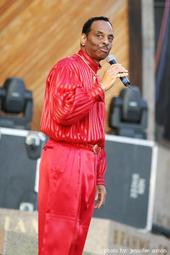 Earl Young
Earl Young
Troy- Do the Trammps still today go out together and perform?
Plummer- Well they broke up and now there are two different organizations. Earl Young played drums and he was the drummer for MFSB and the Sal Soul Orchestra. If you look at all that Sounds of Philadelphia and stuff and you looked at who played drums that was Earl Young. He was also the bass vocalist for the Trammps. He was the guy that use to say,”Hello Baby how’ve you been?” But that was Earl Young. So they broke up and Earl tours with a group and the other group has what is left of the other original singers and they all are starting to have elements of health problems that are related to age and drinking. Now the thing I can say about and remember, without any names and stuff the older guys tended to be alcoholics and the younger guys tended to be into all the drugs. God and grace was looking down and shining on me because I didn’t get caught up in any of that mess.
Troy- Yes I can say you are truly blessed going from the D.j.ing all over New York which in the 70’s was a drug factory, and then you go with these Rock Stars across the world. When you got with them they had not even done Burn Baby burn yet, am I right?
Plummer- Not yet but even before that they were much better known overseas. Like in England they were big.
Troy- I guess so because I didn’t know about them until the album Saturday Night Fever came out.
Plummer- I see, no they had a record in like 1972. The Pink album which was a phenomenal album and they had “Zing Went TheStrings of My Heart” which, was even earlier than that album. But the thing about it like I said was they were well known around the globe. The most notable trip I took with them was to Brazil . We spent the month of December 1977 in Brazil . We played in that big soccer stadium in Rio de Janeiro. I’ve never seen anything that large in my entire life. That place could hold a 125,000 people.
Troy- So you had to hook up the sound there as well?
Plummer- No that was all taken care of whenever we traveled to these big coliseums or stadiums the sound was all taken care of. See when it’s that big of a venue the promoter hires out a sound company and I would be the one at the board mixing. I was in charge of making sure the Trammps sound was the way the Trammps wanted it to sound.
Troy- So what were your thoughts when you saw the movie Saturday Night Fever being as you were once a D.j. and this stuff is still going on although you have moved on?
Plummer- Well I remember when I went to the club and it looked nothing like the movie, I was so disappointed. That club is down in Bay Ridge down near the Verrazano Bridge. The club doesn’t exist anymore but I remember when we played there and were so disappointed when we went in there because it looked so tacky and dirty and everything. I was like wow you would never know looking at that movie.
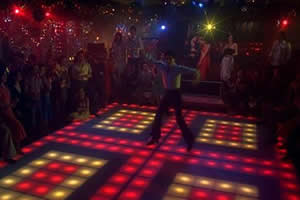 Troy- So what was your length running with the Trammps.
Troy- So what was your length running with the Trammps.
Plummer- I went back to school in September 1978, so it was until the summer of 78.
Troy- So you had a two year run. So while you were with them you were considered the New York boy, being as they were all from Philadelphia?
Plummer- Yes but I was more considered the book worm and they didn’t know my notoriety in New York because they were in a different world. During that time musicians didn’t really care about D.j.s because the D.j.s were taking their business and anyhow, it was competition. They looked at it as they were getting less gigs because people were paying less money for a D.j. for recorded music then to bring in a live band.
Troy- Right, theirs all these band members with all these instruments and this guy comes out with two turntables and an amp and he got the whole dog on crowd. So now you parted ways with the Trammps because they were on a decline?
Plummer- No they weren’t they were still going strong but I think what happen was I started maturing because I got married which was in 1977. My first child was born in 1980. I know what was happening was I was getting bored. We were traveling around and I never really got the chance to site see and the reason why I bought up the Rio thing is two reasons one was the coliseum in Rio.
See that was something in the industry because when I was traveling we had a lot of fun, we played together one summer with Bootsy and that was fun because he had the Horny Horns with him and that was Fred Wesley and Maceo Parker who did the horns for James Brown. Those guys were crazy. So we ran into a lot of people. We also played with Gloria Gaynor so I met a lot of industry folk during that time.
I remember we were also in Sao Paulo and Porto Alegre but Rio was when I really started noticing that these guys were really hard partying dudes. I was captivated and had a life changing experience of noticing the huge disparities between the haves and have nots and how they were so correlated with skin color; something I had up to then assumed only existed in the United States and South Africa . Coming from NYC, I wasn’t afraid to put some old jeans and sneakers on, go up into the hills and follow my curiosity; although I probably should have been. Rio was one of the most physically beautiful cities I have ever been to, but I couldn’t get past the stark contrast with the people who lived in the adjacent hills; whole families residing in wood shanties. That left a permanent mark and I realized then that I needed to re-think my life.
Troy- So what about Clinton?
Plummer- We didn’t run into Parliament the show, in other words it wasn’t like George Clinton show or anything but if he came to hang out with Bootsy then we saw ruminants of it. Now what was interesting when I went back to engineering school I met George Clintons daughter and she was a music major and she was in the mist of getting a part time job with Jimi Hendrix’sElectric Lady Studio in New York down in the Village. She was a musician but she wanted to understand some of the engineering basics so she took some of her electives in the engineering school. To me I was like,”wow how things go around. I get out of the industry and I met George Clintons daughter.” In 1982 took a job with Bell Telephone Laboratories.
Troy- So when you walked away from The Trammps and finished school the bug still never hit you to D.j.
Plummer- Well I did one party and that was on campus and that was because someone realized I was this guy they considered another generation that was a famous D.j. so they wanted me to play and I played one party, and that was it like ho hum! (Plummer chuckles.) I was now excited about something else, I was into a different world I was into technology I was into computers, I was into building things. so I didn’t have that passion that I had before for D.j.ing. Although like you said there was that itch, so o.k. I played it but I didn’t get that same thing that I got years earlier.
Troy- Ok so although you did not get that itch were you staying in Queens going to school?
Plummer- No I was in New Jersey going to the Rutgers University, College of Engineering. I was married then living in Plainfield New Jersey. Like I said earlier this was around 1978.
Troy- So Rappers Delight still had not come out yet and hip hop is starting to explode and you got all these D.j.s as far Flash, Theodore and in Queens you got these guys Ciphers Sounds, D.J. Divine and the Infinity Machine as well as The Disco Twins and you knew nothing about it because you were not living in the 5 boroughs any longer!
Plummer- Well I knew nothing about them because I was in a different world then I was now in a high technology world. I was working in a UNIX® systems development group.
Troy- So you caught UNIX when it first started?
Plummer- Not at the beginning, but sort of in the early days and it was close to home so that was cool. So that was the beginning of my other career and I’ve been involved with technology every since. As far as my neighborhood, I’ve always been involved with some kind of community project, whether it was advocating for my children within the school system, working sort community related education projects or like for the past five years, I’ve been running a martial arts leadership program down the the Boys and Girls Club in Trenton New Jersey.

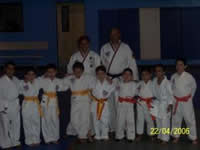
Troy- God bless you my brother. The last question I have for you is have you ever been back to Riis Beach since those early days?
Plummer- No I heard its different, I heard today it’s a wildlife sanctuary, it’s like a national park.
Troy- Thank you Mr. Plummer it was great talking to you.
Plummer- no problem and thank you also for giving me the time.
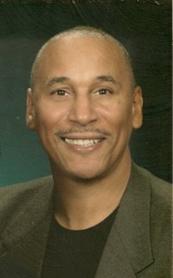
D.J. Ron Riis Beach Plummer Today

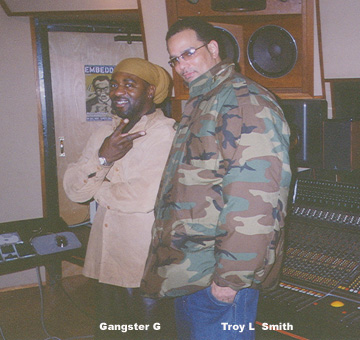

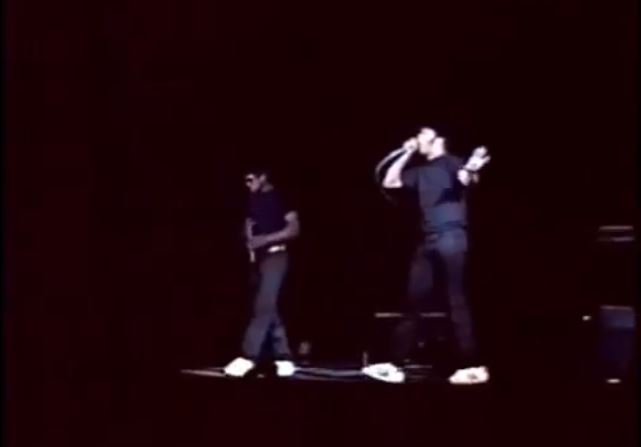

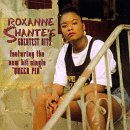
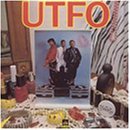

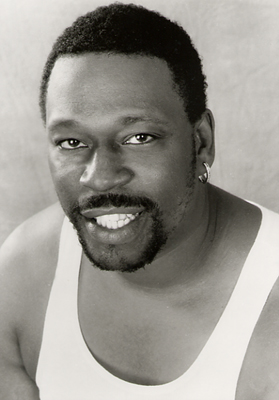






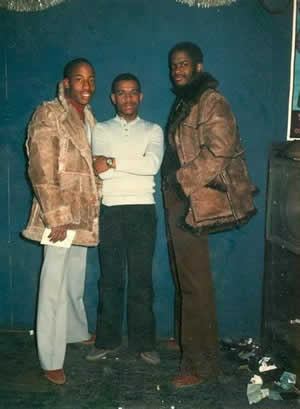



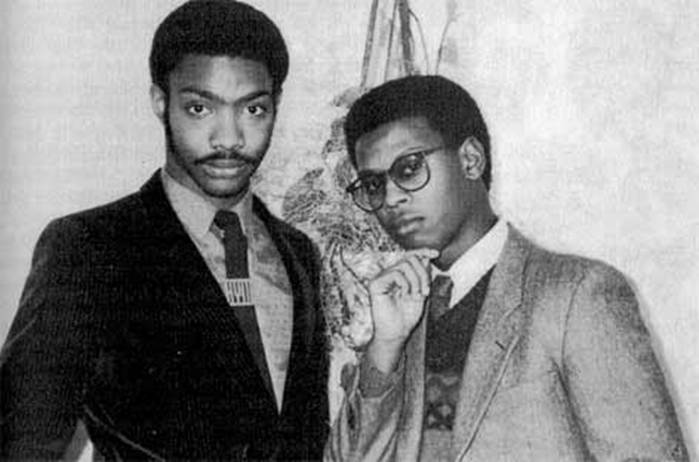
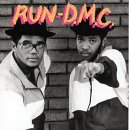

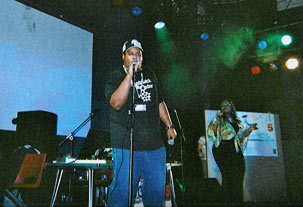
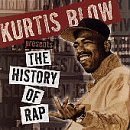
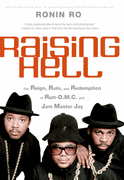
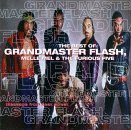
February 16, 2011
this was great i wanted to do what you are doing but in book form. dut i guess this is better. i was at the beach in 1974. frankie crocker had a rolls, and flowers in bk was the man ,larry lavan lived near me in brooklyn, when we were at the beach ron was there maboya was there, and maybe pete dj jones. do you have a email for mr. jones and plummer? appletownsports@gmail.com dj mike c
July 29, 2012
Hi, I just here online looking around and just saw your picture and saw here where you say that you
Was born in Morrisania Hospital, in New York, in the Bronx. I was born in Morrisania Hospital in the
Bronx too. And I thought somebody told me that Morrisania Hospital has gotton torn down because
It was so old. And then I fine here that the hospital has been closed. So I was glad that I saw you here
Say that you was born in Morrisania Hospital.
And now I have been away from New York For a long time now. I miss Bronx New York.
November 24, 2012
Today black Friday Nov.2012 just a name came to mind Sedley B. While up talking to my fam. in nj got on my phone and gogled,this linked to Mr.Ron P….recapping the goodtimes.Godtimes, good article. Contact 609trucker@gmail.com. 6092277418
December 24, 2012
This was a great interview. I too was disappointed at first that you had left the game. Your contribution is immeasurable. You were one of the approachable dee jays back then. Glad I was able to follow in your footsteps by hooking up with Action Jackson. It was an honor to use your dee jay console after you retired. I still remember some of your songs from your playlist. I liked your sound system. You really made those Philly International records sing, especially Dirty Old Man by the Three Degrees. I can still hear those bullet tweeters today. Lol. It is a pleasure an honor to have followed in your dee jay foot steps. Even though you blew us (Fantasia) away while we were a fledgling ensemble, I learned a lot from the experience. LOL
Would be nice to do it one more time. Show these whipper snappers the real deal.
December 21, 2013
Great interview, Troy! I always liked Plummer’s DJ’ing BEST! Believe me, I had been to practically every club in the city since, at least, 1970 (of course, I was under-aged then, though, and still don’t know who I got in initially) and had heard all of the DJ’s (big and small) play at one time or another. From the 371 Club in The Bronx, to The Factory West in Harlem, and the Third World Gallery in Manhattan, to The Town Hill II in Brooklyn, a couple of clubs in Queens, and even Club Zanzibar in Jersey, The Loft and The Paradise Garage, I listened to the DJ’s spin and mix and keep the crown going. Plummer definitely held my attention as both a music lover and a dancer. Plummer played “serious Hustle joints” and we all loved his playlist and the way he played. He KEPT us on the dance floor all night!
Plummer was sorely missed when he left the scene and no one could possibly replace him. I was one of his followers and, yes, he had some really great dancers following him (many of whom were already named, above).
Gregory Myers, Larry Levan, David Mancuso, et al, were all great, too, but my favorite was always Ron “Riis Beach” Plummer!!
I used to go out 7 nights a week, 2 or 3 clubs a night back in the day (and, yes, Raspberry Freeze was one of them). Now, I go out now and then (more then than now, LOL) and, to this day, I have never heard anyone DJ like Plummer!
Plummer, you are sorely missed!